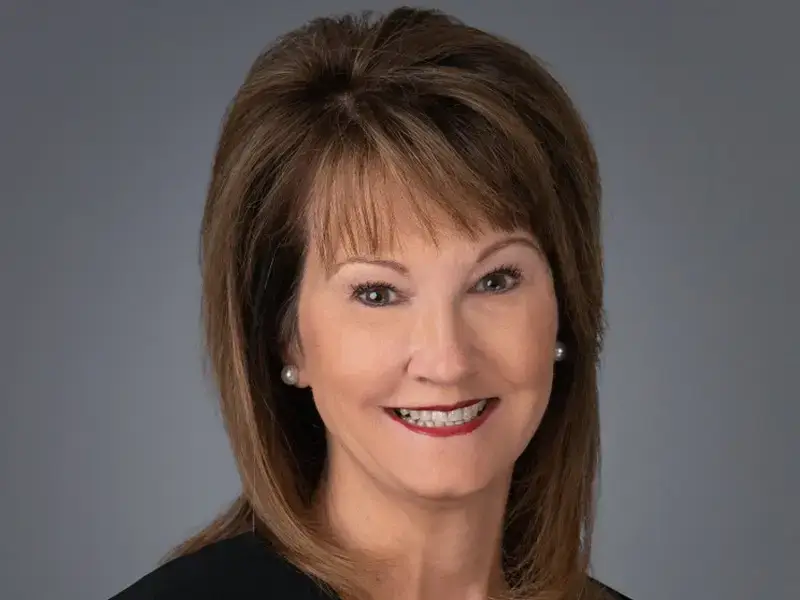
- Discounts
- 615-899-5343
- [email protected]
- 381 Mallory Station Rd. Ste. 202 Franklin, TN, 37067
- NMLS# 1405112

Becoming a mortgage loan officer is an exciting career path filled with opportunities. The industry offers high earning potential, flexibility, and the chance to help people achieve homeownership. However, many new loan officers struggle to gain traction, and some fail entirely.
The biggest mistake new loan officers make? Failing to build relationships and relying too much on online leads or transactional business.
While licensing and technical knowledge are crucial, this is a relationship-driven business. Those who neglect networking, building trust, and establishing a solid referral base often find themselves stuck in a cycle of chasing deals instead of building a sustainable career.
I recently attended an industry luncheon where the guest speaker shared a personal experience that underscored the importance of relationship-building in this business. He explained that, despite shopping around for the best mortgage rate and terms, he had used this loan officer for that transaction and then again two more times for his home financing needs. Why? Because that loan officer (who has since been promoted to an Area Manager) didn’t just process his loan—he became his trusted advisor.
During the discovery phase, instead of just quoting rates, the loan officer took the time to ask deeper questions:
Given the nature of his work, it was likely that he’d be relocating in a few years. Instead of pushing a traditional mortgage, the loan officer provided options that better fit his specific needs. That level of consultation and knowledge of product offerings, rather than just transactional service, made him a client for life.
Many new loan officers invest too much time and money in internet leads without understanding that cold leads have a much lower conversion rate than referrals. The most successful LOs cultivate relationships with real estate agents, financial advisors, past clients, and community leaders.
Solution: ✅ Focus on networking, attending industry events, and providing value to referral partners.
New loan officers often underestimate how complex mortgage products and guidelines can be. Without thorough knowledge of loan programs and market trends, they struggle to offer the best solutions.
As a senior manager reviewing loans, I noticed that during high-volume periods, loan officers frequently placed borrowers into the simplest or requested loans. However, top-performing loan officers consistently provided creative solutions tailored to each borrower’s unique needs.
Solution: ✅ Continuously educate yourself on different loan types, underwriting guidelines, and industry changes. ✅ Follow Fannie Mae, Freddie Mac, FHA, VA, USDA and local Down Payment Assistance providers for updates to stay ahead. Subscribe to Mortgage News providers to stay informed.
The mortgage process is complex, and clients need frequent, proactive updates. Many new loan officers rely too heavily on technology, leaving clients and realtors frustrated. While automated status updates are helpful, successful loan officers understand that mortgages are emotional transactions requiring personal, thoughtful communication. Clients remember how you made them feel—not the texts you sent.
Solution: ✅ Set clear expectations and provide weekly status updates to clients and referral partners by phone. ✅ Use CRM tools to manage leads, track follow-ups, and automate status communication.
The mortgage industry is competitive. Clients and realtors have plenty of loan officers to choose from. New loan officers who fail to define their unique value proposition struggle to stand out. One of the conversations I have with new loan officers is “who do you expect to send you referrals”. They will always list the Realtors or Builders they know, but I would follow up with, how “compelled” are they to send you business? There is a difference between contacts and true referral partners.
Solution: ✅ Develop a personal brand that highlights your strengths, expertise, and client-first approach. ✅ Leverage social media, video marketing, and client testimonials to build credibility.
Many new loan officers mistakenly think the industry offers quick, easy money. In reality, success demands hard work, persistence, and continuous learning. When mortgage companies went fully remote during COVID, it became clear that lending could function remotely—but the intangibles like culture, shared learning, and office competition suffered.
New loan officers often struggle without the informal team interactions and opportunities to overhear experienced colleagues solve client challenges.
Solution: ✅ Treat this like a marathon, not a sprint, and take time in the beginning to work closely with a trainer or mentor to build a strong foundation. ✅ Set realistic goals, track progress, and stay accountable.
Great loan officers build trust through meaningful relationships, proactive communication, and consistent prospecting. They continuously educate themselves, stay ahead of industry changes, and confidently solve complex problems.
Don’t chase transactions—prioritize genuine relationships, ongoing learning, and disciplined communication to achieve lasting success.
Ready to take your mortgage career to the next level? At Next Level Education, we provide the training, resources, and coaching to help you excel in the industry. Learn more about how we can support your growth today!




